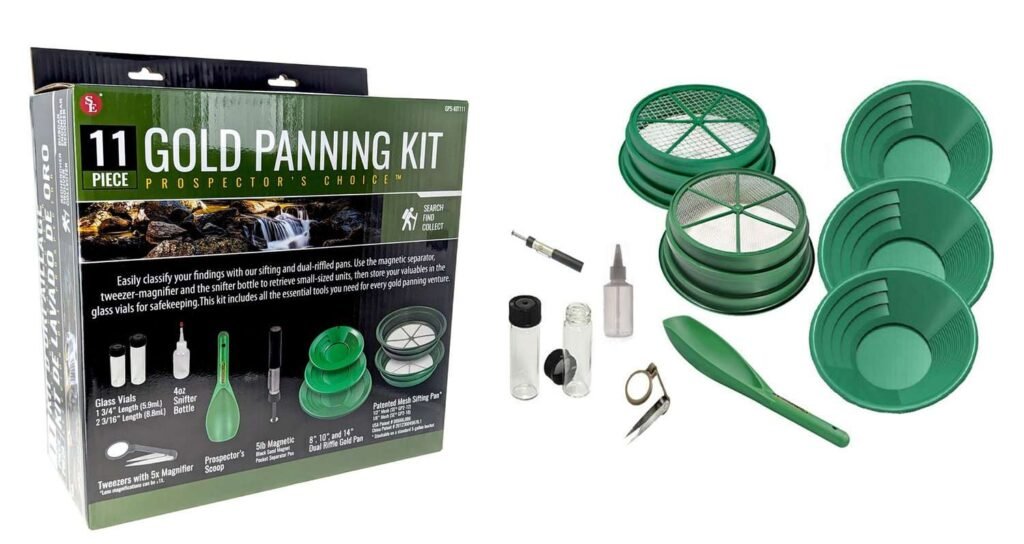When most people think of Charlotte, North Carolina , they imagine a bustling city known for banking, NASCAR, and Southern charm — but long before it became a financial hub, this area was at the heart of America’s first significant gold rush .
In 1799, a 17-pound gold nugget was discovered just east of Charlotte in Cabarrus County — marking the first documented gold find in the United States . By the early 1800s, North Carolina was the leading gold-producing state in the nation, rivaling California decades before its famous 1849 rush.
Though large-scale commercial mining has faded, the region still offers recreational gold panning opportunities , historic mine tours , and a fascinating glimpse into a forgotten chapter of American history.
🗺️ Key Gold Mining Areas Near Charlotte
| Location | Highlights |
|---|---|
| Reed Gold Mine (near Midland) | Site of the first U.S. gold discovery; now a state historic site |
| Morrow Mountain State Park (Albemarle) | Public lands with reported gold traces |
| Caraway Creek (Stanly County) | Popular spot for recreational panning |
| South Mountains State Park (near Connelly Springs) | Historic placer gold areas |
| Private Pay-to-Pan Parks | Some landowners offer guided gold panning experiences |
🧭 Recreational Gold Panning Opportunities
Several areas near Charlotte allow visitors to try their hand at gold panning :
- Reed Gold Mine State Historic Site – Guided panning demonstrations
- Caraway Creek – Seasonal panning allowed on public lands
- Morrow Mountain State Park – Limited gold-bearing zones
- Private pay-to-pan parks and museums
These locations provide a fun and educational way to experience the excitement of the original Southern Gold Rush.
🔧 Tools You’ll Need for Gold Panning
| Tool | Use |
|---|---|
| Gold Pan | Separates gold from sand and gravel |
| Classifier Screen | Sorts material by size |
| Snuffer Bottle | Picks up fine gold flakes |
| Magnifier | Helps identify small gold particles |
| Shovel | For digging through gravel and dirt |

🔍 Historical Significance & Modern Exploration
North Carolina led the nation in gold production from the late 1700s until the California Gold Rush began in 1848. The Reed Gold Mine , located just 20 miles from Charlotte, operated for over 100 years and produced more than $5 million worth of gold (in today’s currency).
Today, the Reed Gold Mine is preserved as a State Historic Site , offering museum exhibits, guided tours, and even real gold panning demonstrations.
While commercial mining has largely ended in the Charlotte area, modern-day prospectors still search for gold using metal detectors , geological surveys , and traditional panning techniques.
🌲 Environmental and Legal Considerations
Gold mining near Charlotte must follow strict rules due to environmental protections and private land ownership:
- Hand panning is generally allowed on public BLM or USFS lands without a permit
- Motorized equipment (sluices, dredges) often requires permits
- Always practice leave-no-trace ethics
- Respect posted boundaries and protected areas
Always check with the North Carolina Department of Natural and Cultural Resources or local ranger stations before beginning any prospecting activity.
❓ Frequently Asked Questions (FAQ)
Q1: Can I go gold panning near Charlotte?
Yes! There are several legal areas near Charlotte where recreational gold panning is allowed, especially at Reed Gold Mine , Caraway Creek , and Morrow Mountain State Park .
Q2: Do I need a permit to pan for gold in North Carolina?
For simple hand panning (no motorized tools), you generally don’t need a permit on public lands . However, always confirm current rules with the U.S. Forest Service or local authorities .
Q3: What tools do I need to start gold panning?
At a minimum, you’ll need a gold pan , classifier screen , shovel , and snuffer bottle . Optional tools include a magnifier and tweezers .
Q4: Is gold still mined commercially near Charlotte?
Most commercial mining has stopped in the Charlotte area due to low yields and environmental concerns. However, some small-scale prospecting and exploration projects continue on limited claims.
Q5: What is the best time of year to go gold panning near Charlotte?
The best time is late fall through early spring , when water levels are lower and streambeds are easier to access.

